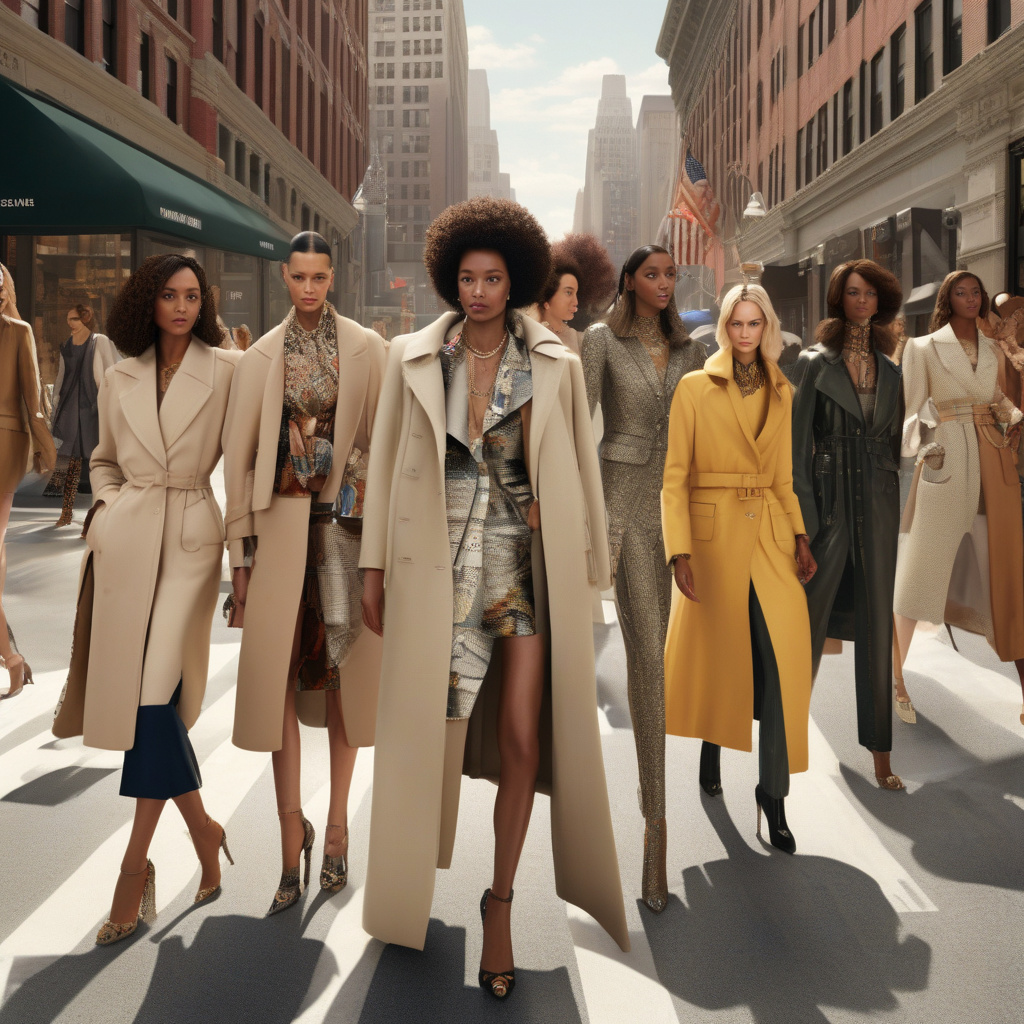Are US Fashion Brands at Risk of Growing Anti-American Backlash Over Trump Policies?
In recent years, the global fashion landscape has been significantly influenced by political climates, especially in the United States. The fashion industry, known for its ability to reflect societal trends and cultural shifts, now finds itself at a crossroads. As the political tensions surrounding former President Donald Trump’s policies linger, there is a looming question: Are US fashion brands facing a potential backlash due to an increase in anti-American sentiment?
The fashion industry has long thrived on the appeal of Americana aesthetics—think classic denim, preppy styles, and the embodiment of American spirit. Brands such as Ralph Lauren, Tommy Hilfiger, and Levi’s have built their identities around celebrating American culture, often drawing inspiration from the nation’s rich history and cultural diversity. However, any sign of an anti-Americanism trend could spell disaster for a sector that relies heavily on its global appeal.
The relationship between politics and consumer behavior is complex. When political decisions lead to division, it often translates into consumer sentiment. Take, for example, the backlash faced by companies like Nike and Under Armour during the Trump administration. Both brands experienced boycotts over their perceived political stances, with consumers either rallying in support or opposition. This dichotomy illustrates how deeply intertwined consumer behavior is with political climates.
As political tensions remain high, fashion brands must navigate this landscape carefully. The risk of alienating international markets is evident, particularly in regions where anti-American sentiment has taken root. Brands that pride themselves on their American identity may struggle to maintain their market share if consumers begin to associate them with negative political connotations. This reality poses a significant challenge for companies that have invested heavily in branding tied to American ideals.
Furthermore, the rise of social media has amplified the voices of consumers. A single tweet or Instagram post can spark a movement, leading to widespread boycotts or support. The fashion industry is not immune to this phenomenon. In recent years, we’ve seen brands face immediate repercussions for their political affiliations or perceived insensitivity. The potential for a backlash against American brands is heightened in an era where consumers are more vocal about their values and beliefs.
To illustrate the potential ramifications, one need only look at the success of brands that have distanced themselves from traditional Americana themes. Many international brands, particularly those hailing from Europe and Asia, have gained traction by promoting inclusivity and global representation in their designs. As consumers seek out brands that align with their values, American companies may find themselves at a disadvantage if they continue to cling to an identity tied to a politically fraught narrative.
Moreover, the global fashion market is highly competitive, with brands vying for consumer attention across borders. As anti-American sentiment potentially grows, US fashion brands could struggle to maintain their foothold in markets that are increasingly favoring local or alternative options. For instance, European brands have gained popularity not only for their designs but also for their ability to resonate with consumers on cultural and political levels. In contrast, American brands that do not adapt to these shifts risk being left behind.
It is not all doom and gloom for US fashion brands, however. There is an opportunity to pivot and redefine what it means to be an American brand in a global context. By embracing diversity and promoting social responsibility, brands can align themselves with a more inclusive narrative. Many successful fashion companies are already taking steps in this direction by collaborating with international designers and supporting local artisans, thereby broadening their appeal.
Furthermore, brands can leverage the power of storytelling. By focusing on narratives that celebrate unity and shared experiences rather than division, American fashion companies can reframe their image and connect with consumers on a deeper level. This is especially crucial in an era where consumers are increasingly seeking brands that reflect their values and beliefs.
In conclusion, while US fashion brands may face risks of an anti-American backlash due to lingering Trump-era policies, there is also a path forward. By adapting to the changing political landscape and embracing a more inclusive identity, these brands can not only survive but thrive in a global market. The key lies in understanding consumer sentiment and responding to it with authenticity and purpose. As the fashion industry continues to evolve, American brands must recognize the importance of being not just a symbol of American culture, but also a beacon of progressive values that resonate with consumers worldwide.
#FashionTrends, #ConsumerBehavior, #AmericanBrands, #GlobalMarket, #CulturalShift
